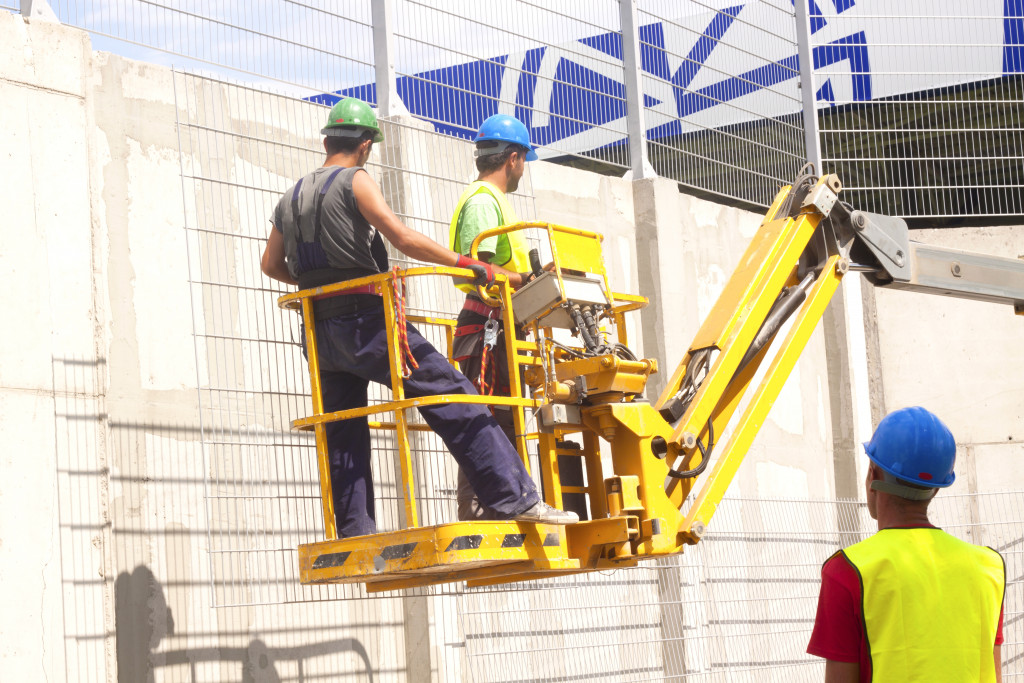To succeed, commercial building renovations require a significant amount of planning and coordination. They also cost a lot of money, so it’s essential to carefully consider all of your options before beginning a project. You don’t want to end up regretting your decision later. Some people even get fined by their local government for not following the correct procedures when renovating a commercial building.
In this article, we’ll discuss key factors to ensure a successful renovation project.
Factor #1: The Purpose of the Renovation
The first thing you need to consider is the renovation’s purpose. What are you hoping to achieve with the renovation? Are you looking to increase the square footage of your building? Do you want to update the building’s exterior for a more modern look? Or are you looking to make interior changes to improve functionality and the tenant experience?
All of these are valid reasons for renovating a commercial building. However, you’ll need to clearly understand your goals before proceeding. This will help you make the right decisions about which changes to make and how to go about making them. Don’t assume you can blindly follow someone else’s renovation plans – what worked for them may not work for you.
Factor #2: Your Budget
The next factor to consider is your budget. How much money do you have available to invest in the renovation? It’s essential to be realistic about what you can afford so that you don’t overspend and jeopardize your business financially. Depending on your renovation plans, you may spend anywhere from a few thousand to hundreds of thousands of dollars.
Don’t forget to factor in the cost of permits, inspections, and other required fees. These can add up quickly, so it’s essential to be aware of them from the start. You can talk to your contractor about ways to save money on the overall project. For example, they may be able to source cheaper materials or labor. Always get multiple quotes from different contractors before making a final decision.

Factor #3: The Disruption Factor
Another important consideration is the disruption factor. How much disruption will the renovation cause for your tenants or customers? Suppose you’re planning a major expansion requiring demolition and construction work. In that case, it’s essential to notify your tenants in advance and make arrangements for them to relocate during the construction process. You’ll also need to factor in the potential loss of revenue that could result from disruptions to your business operations.
Additionally, almost every construction project will affect the environment around the building, so you’ll also need to consider these. If you break ground, you may erode the soil and damage the surrounding area, so you’ll need to follow erosion control techniques. You may also need approval from the local government before beginning construction.
Factor #4: The Building’s Age and Condition
The age and condition of your building will also play a role in the renovation process. If you have an older building, there may be hidden damage that you’re not aware of. As such, it’s crucial to have a professional inspector look at the building before proceeding with any renovation plans. They will be able to identify any potential problems that could impact the project.
For example, if there’s asbestos in the building, it will need to be removed before any demolition or construction can begin. Only trained individuals should handle asbestos removal, as it can be dangerous if done incorrectly. The same goes for lead paint – if your building was built before 1978, there’s a good chance it contains lead paint, which will need to be removed safely. These can add considerable time and expense to the project, so it’s essential to be aware of it upfront.
Factor #5: The Timing
Finally, you’ll need to consider the timing when renovating your commercial building. What is the best time of year to undertake such a project? Will you need to close your business for some time during the renovations? These are all critical questions that need to be answered before work can begin on your project.
Always schedule your renovation project during the slower months for your business. This will minimize the impact on your operations. If you need to close your business temporarily, make sure you notify your customers in advance and make arrangements for them to still be able to access your products or services.
Renovating your commercial building can significantly improve its appearance, functionality, and/or square footage. However, it’s essential to carefully consider various factors before starting any renovation project. Every project is different, so it’s essential to work with a professional contractor who can help you navigate the process and ensure your project is completed successfully.

